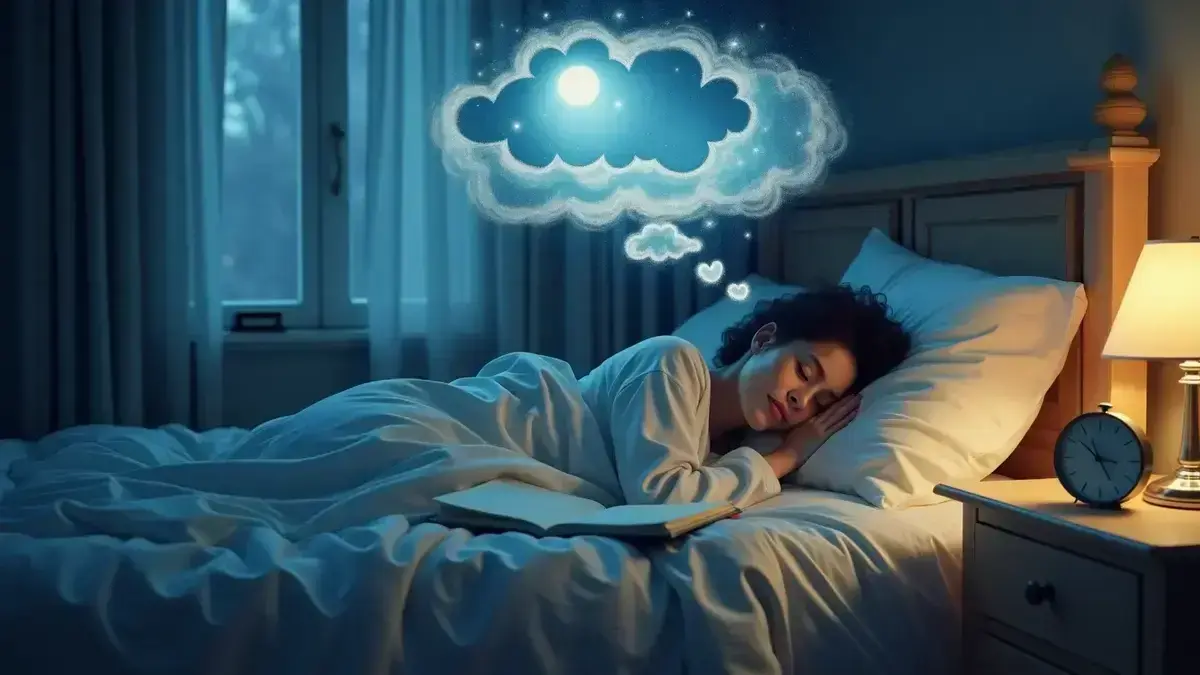Dream memories reveal a fascinating phenomenon in which the ability to remember dreams varies significantly from one person to another. This memory retention is based on a complex interaction of physiological and psychological factors. Elements such as sleep cycles and brain activity play a crucial role in this dynamic. While less than 1% of the population does not dream, there are many who simply lose the thread of their dream memories upon awakening.
Essential Information
- Dream memories are unique to each person.
- The retention of dreams is influenced by sleep cycles and nocturnal awakenings.
- Big dreamers exhibit more intense brain activity.
- Physiological and psychological factors interact to shape dream memory.
Dream Memories and Individual Variability
Memories of dreams vary greatly from person to person. For some, dreams are vivid and memorable experiences, while others struggle to recall even the simplest dream images. This phenomenon raises intriguing questions about the nature of memory and the psychological processes underlying our ability to remember dreams.
Sleep Cycles and Brain Activity
The capacity to remember dreams largely depends on sleep cycles and the associated brain activity. During REM sleep, the phase in which dreams are most intense, brain activity is particularly high. This means that some individuals, by spending more time in this phase, will develop a dream memory that is easier to recall.
Nocturnal Awakening and Dream Recall
Another important element is nocturnal awakening. A brief awakening after a dream can serve as a catalyst that helps to embed dreams in memory. Individuals who frequently wake up at night tend to retain a greater amount of dream memories. This underscores the importance of the precise moment of awakening in the retention of dream details.
The “Big Dreamers”
Studies have shown that the brain activity of “big dreamers” is more intense, particularly at the level of the temporal-parietal junctions. This area of the brain, which is involved in sensory integration and self-perception, plays a crucial role in forming dream memories. Individuals with strong activation in this region develop an enhanced ability to recall their dreams.
Duration of Awakening After a Dream
The duration of the awakening that follows a dream also has a significant impact on retention. The longer someone stays awake after a dream, the harder it becomes for them to remember specific details. This phenomenon is explained by the fact that our minds continue processing new information, which can erase or alter fragile dream memories.
Frequency of Dreams
It is interesting to note that less than 1% of the population does not dream, while most people simply lose their dream memories. This indicates that the brain receptivity to receiving dreams is universal, but the capacity to hold onto them depends on other internal and external factors.
Influential Factors in Dream Recall
Brain receptivity and the openness of mind are also essential aspects that influence dream recall. Individuals with a positive attitude toward reflection and imagination are often more likely to remember their dreams due to their greater ability to engage in complex cognitive processes. These interactions highlight the complexity of the mechanisms involved in remembering dreams.
Young People Are Getting Gray Hair Earlier, According to This Recent American Study
REM Sleep Cycles and Retention
The long cycles of REM sleep are crucial for enhancing the retention of dreams. The more time someone spends in REM sleep, the more likely they are to remember their dreams upon waking. This emphasizes the importance of quality sleep for rich and detailed dream recall.
Interactions of Physiological and Psychological Factors
Ultimately, it is clear that the complex interaction of physiological and psychological factors determines dream recall. Understanding this dynamic can help illuminate how and why some people effortlessly experience their dreams, while others seem to forget them almost immediately upon waking.

